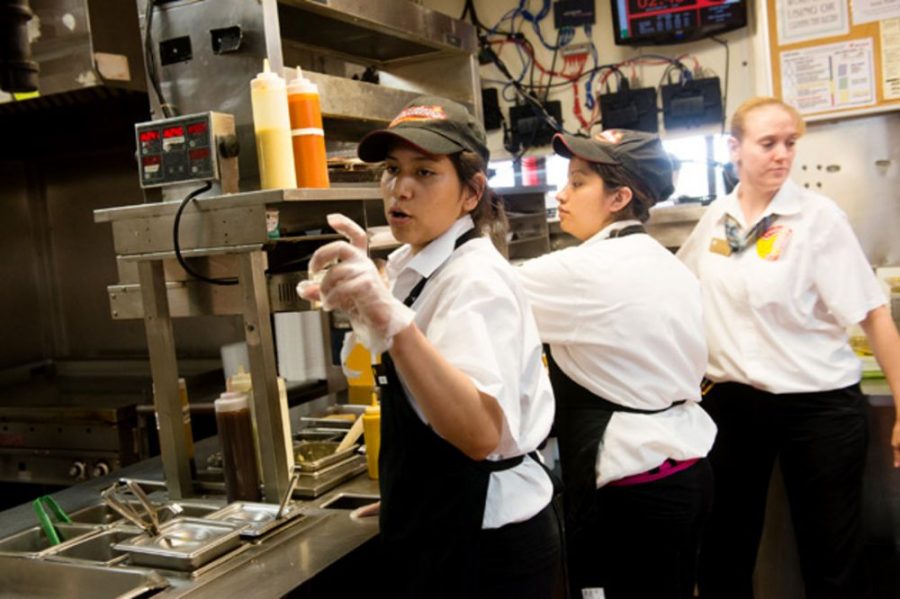U.S. workforce underpays minorities stuck at front lines of Global Pandemic
Thousands of food service and retail employees were placed at-risk with little pay as COVID-19 swarmed over the past year.
The struggles of being a part of the working class in America while being stuck in the middle of a global pandemic has made life difficult for many. Minimum wage has been a hot topic for what feels like forever now and nothing seems to be changing. People all over the country are clocking into work five minutes early and staying hours late just to make ends meet because they know that the beguiling $7.25 an hour is not going to get food on the table. The saddest part is most of these minimum wage jobs require a lot more than minimum skill and in turn are overworking people in need of money.
Since the pandemic resulted in widespread job reduction, many people turned to low-paying minimum-wage work as a means of gaining financial security in the wake of the pandemic.These same underpaying jobs are also considered to be essential, however not essential enough to make more than minimum wage.
Local Checkers Supervisor, Georges Ernest, feels that working in fast food is very unrewarding and the environment is overwhelming. “And those companies only hire for part time jobs just for them to increase their revenue but while applying for part time jobs you’re doing the job of a full time worker,” Ernest says.
Ernest is a black woman working in the food industry, so she has experienced first hand how employers take advantage of their workers while knowingly underpaying them. Most people working these jobs pertain to minority groups in America such as 63% of latinx women earning low wages as well as 54% of black women earning low wages.
Local Checkers Supervisor, Estefany Mendoza, has been working there throughout this extensive pandemic. She is a latina 17-year-old teen mom. “My parents stopped working and we had several bills to pay, and especially having a baby of course makes it a bit harder,” said Mendoza. She wants to be able to provide for herself and her family which is why she pushes herself to work so hard.
“I try to help with the bills at least or some it’s not enough porque no me queda ninguna ganancia,” said Mendoza. She ended the sentence stating she is always left with no gains and so she is struggling with paying her bills. Mendoza is very consistent in her work life and works long draining shifts every single week, but somehow she still has to worry about being able to provide for her baby.
About 44 percent of the labor force in America makes low wages. People of color, and primarily women of color like black and latina women, make up most of that percentage. They are more likely to work low-wage jobs with less benefits, take on more heavy duty tasks, and less job security because of the necessity to earn money to live off of and provide for themselves. America is setting them up to struggle when they have been the backbone of this country, and the reason it has been able to hold its own weight in this devastating pandemic.
According to The Refinery29, “between 1979 and 2018, the productivity of U.S. workers went up by almost 70%. Wages, though? Just 11.6%”. This directly displays that it is not that the workers do not deserve a raise in wages because they aren’t working hard enough, but it’s because they’re already working as if they’ve been given a fair raise in wage. In reality, they’ve been given no raise and are stuck overworking themselves for no extra compensation while still filling up these companies’ pockets with loads of money.
There are so many wealthy people in America who do not have to worry about keeping the lights on, or who are making enough money for next month’s rent. It’s so unfair that not everyone can live that way like the low wage workers who are always tired from working too much, but can never be tired enough to stop working. They can’t afford a break, and that is unjust.
Your donation will support the student journalists of Parkdale High School. Your contribution will allow us to cover our annual website hosting costs and publish some printed editions, as well.

Andrea Ulloa is a junior at Parkdale, and this is her first year on staff. She loves being a part of The Paw Print because it has given her a creative...












